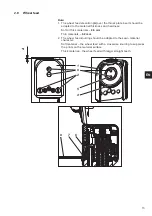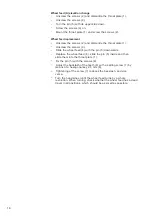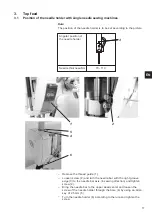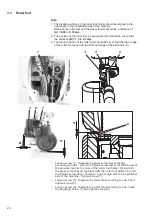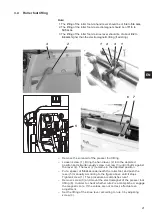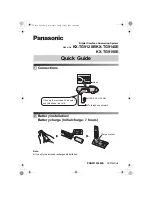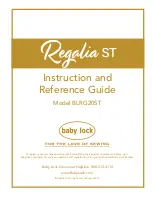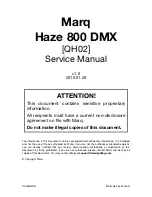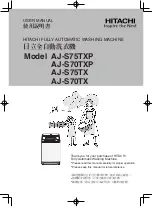
2.8
Wheel feed
Rule:
1. The wheel feed elevation
(A)
over the throat plate insert should be
adapted to the material thickness and hardness:
Soft or thick materials –
0.6 mm
Thin materials –
0.2 mm
2. The wheel feed knurling should be adapted to the sewn material
character:
Soft material – the wheel feed with a crosswise knurling to suppress
the prints on the material surface.
Thick material – the wheel feed with larger straight teeth.
15
EN
A
8
7
6
1
9
2
5
4
Summary of Contents for 884-xxx-M series
Page 1: ...884 Service Instructions ...
Page 34: ...32 4 3 5 ...















